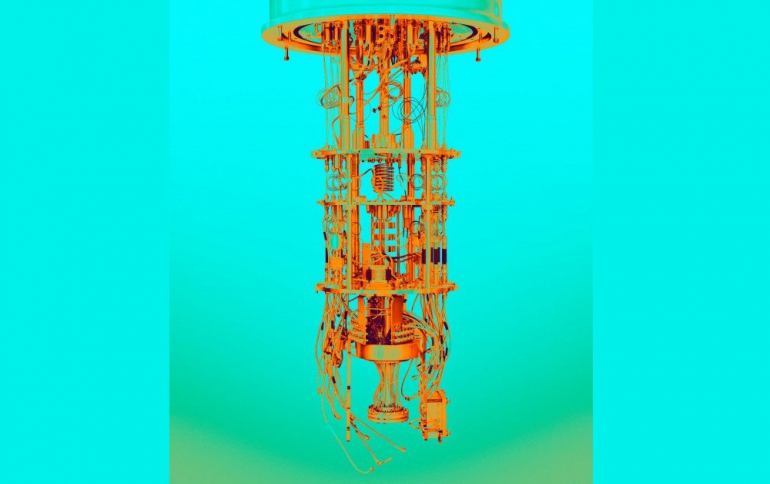
Google Researchers Have Reportedly Created A Real and Extremely Powerful Quantum Computer
A team of researchers from Google led by John Martinis have reportedly demonstrated a quantum computer capable of performing a task that’s beyond the reach of even the most powerful conventional supercomputer.
Google struck an agreement last year to use supercomputers available to NASA as benchmarks for its supremacy experiments. According to a Financial Times report, a paper said that Google’s quantum processor was able to perform a calculation in three minutes and 20 seconds that would take today’s most advanced supercomputer, known as Summit, around 10,000 years. In the paper, the researchers said that, to their knowledge, the experiment “marks the first computation that can only be performed on a quantum processor.”
Unfortunately, NASA has removed the paper from its website.
Quantum machines harness quantum bits, or qubits. Unlike classical bits, which are either a 1 or a 0, qubits can be in a kind of combination of both at the same time.
Qubits are typically subatomic particles such as electrons or photons. Generating and managing qubits is a scientific and engineering challenge. Some companies use superconducting circuits cooled to temperatures colder than deep space. Others, trap individual atoms in electromagnetic fields on a silicon chip in ultra-high-vacuum chambers. In both cases, the goal is to isolate the qubits in a controlled quantum state.
Qubits have some quirky quantum properties that mean a connected group of them can provide way more processing power than the same number of binary bits. One of those properties is known as superposition and another is called entanglement.
Qubits can represent numerous possible combinations of 1 and 0 at the same time. This ability to simultaneously be in multiple states is called superposition. To put qubits into superposition, researchers manipulate them using precision lasers or microwave beams.
A quantum computer with several qubits in superposition can crunch through a vast number of potential outcomes simultaneously. The final result of a calculation emerges only once the qubits are measured, which immediately causes their quantum state to “collapse” to either 1 or 0.
Researchers can generate pairs of qubits that are “entangled,” which means the two members of a pair exist in a single quantum state. Changing the state of one of the qubits will instantaneously change the state of the other one in a predictable way. This happens even if they are separated by very long distances. In a conventional computer, doubling the number of bits doubles its processing power. But thanks to entanglement, adding extra qubits to a quantum machine produces an exponential increase in its number-crunching ability. Quantum computers harness entangled qubits in a kind of quantum daisy chain to work their magic.
Thanks to other quantum phenomena, which some of them were described above, quantum computers can crunch large amounts of data in parallel that conventional machines have to work through sequentially.
It’s not clear what task Google’s quantum machine was working on, but it’s likely to be around a very narrow quantum sampling problem.
In any case, Quantum computers are still a long way from being ready for mainstream use. The machines are prone to errors, because even the slightest change in temperature or tiny vibration can destroy the delicate state of qubits.




















